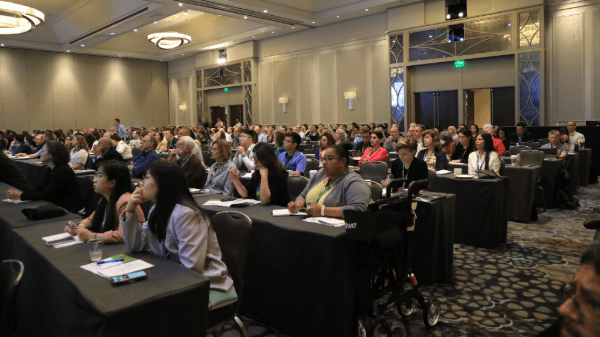WOODLAND, Calif. — Big anniversary, big plans.
Center for Produce Safety’s BB #:339618 15th Annual Research Symposium will take on produce safety’s top research questions when the event gets underway June 18-19 in Denver, CO.
New this year, findings from newly completed research projects will be presented within the overall “State of the Science” on the topic and include greater context to help industry and other stakeholders understand how to more safely grow, harvest, pack, process, store and retail fresh produce. The agenda will also feature four 30-minute produce safety “master classes”.
“If you haven’t attended one of our Research Symposia, this is the year you want to start. If you’ve attended before, you are in for something special,” said CPS board chair Joe Pezzini, senior director of agricultural operations for Taylor Farms. “This year’s Research Symposium will cover the science essentials of fresh produce food safety. We have pulled out all the stops for our fifteenth anniversary event.”
Reporting on the State of Produce Safety Science
Much of the two-day agenda will focus on presenting the “State of the Science” on produce safety’s most important topics. Each of these topical sessions will begin with a summary of key learnings to date on the subject. Then CPS-funded researchers will present final reports of any projects related to the topic, and address how those new findings add on to – or change – key learnings to date.
Next, trusted voices from across the CPS community will report what the research means to industry. These experts hail from across the diverse CPS community, including various industry sectors, academia and the regulatory community.
“State of the Science” topics relevant to every industry sector are planned, including:
• agricultural water management;
• animal intrusion and related pathogen transfer;
• produce safety process control as it relates to wash systems, compost and soil amendments;
• environmental pathogens and their control;
• controlled environment agriculture;
• pathogen detection, persistence, growth and movement; and
• emerging use of genomics.
Master Classes to Focus on Produce Safety Essentials
Sprinkled in between the “State of the Science” sessions, expert speakers will lead 30-minute “master classes” on four produce-safety topics, from how clean is clean to outbreak investigations. These sessions will deliver the essentials on each topic.
“We asked industry members from across the supply chain to identify topics they would most like to learn about. Chances are high that at least a of few of these topics are on your mind, too,” said CPS board chair Pezzini. “When we’ve held sessions like this in the past, we could hear a pin drop the audience was so tuned in. You’ll take away essential knowledge, and advice you can put to work immediately in your operation.”
Register by May 31 and Save
For more information about sessions and speakers, and to register, visit the Events page of Center for Produce Safety’s website at www.centerforproducesafety.org. Take advantage of early-bird discounts by registering by May 31, when industry members can register for $725. From June 1-19, including on-site registration, the industry rate will be $825.
“While we will publish key learnings after the event, being there in person – with the chance for peer networking and direct conversations with researchers – is simply invaluable,” said Pezzini.
About Center for Produce Safety
The 501(c)(3) nonprofit Center for Produce Safety (CPS) focuses exclusively on funding science, finding solutions and fueling change in fresh produce food safety. The center is a unique partnership, bringing together leaders from industry, government, and the scientific and academic communities. CPS funds credible, independent research worldwide, then transfers that knowledge and tools to industry and other stakeholders through an annual Research Symposium, its website, webinars, trade press guest columns and other outreach. Since it was founded in 2007, Center for Produce Safety has invested more than $36 million to fund produce-specific safety research. For more information, visit www.centerforproducesafety.org.



